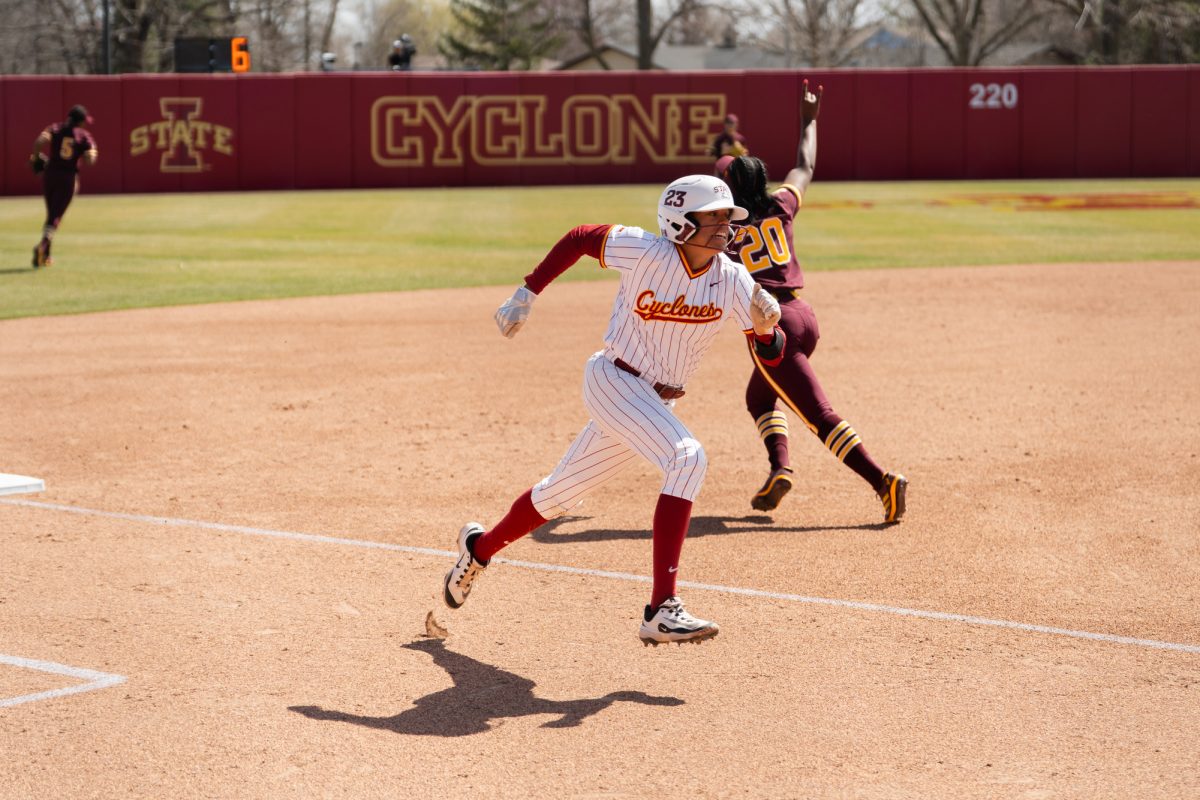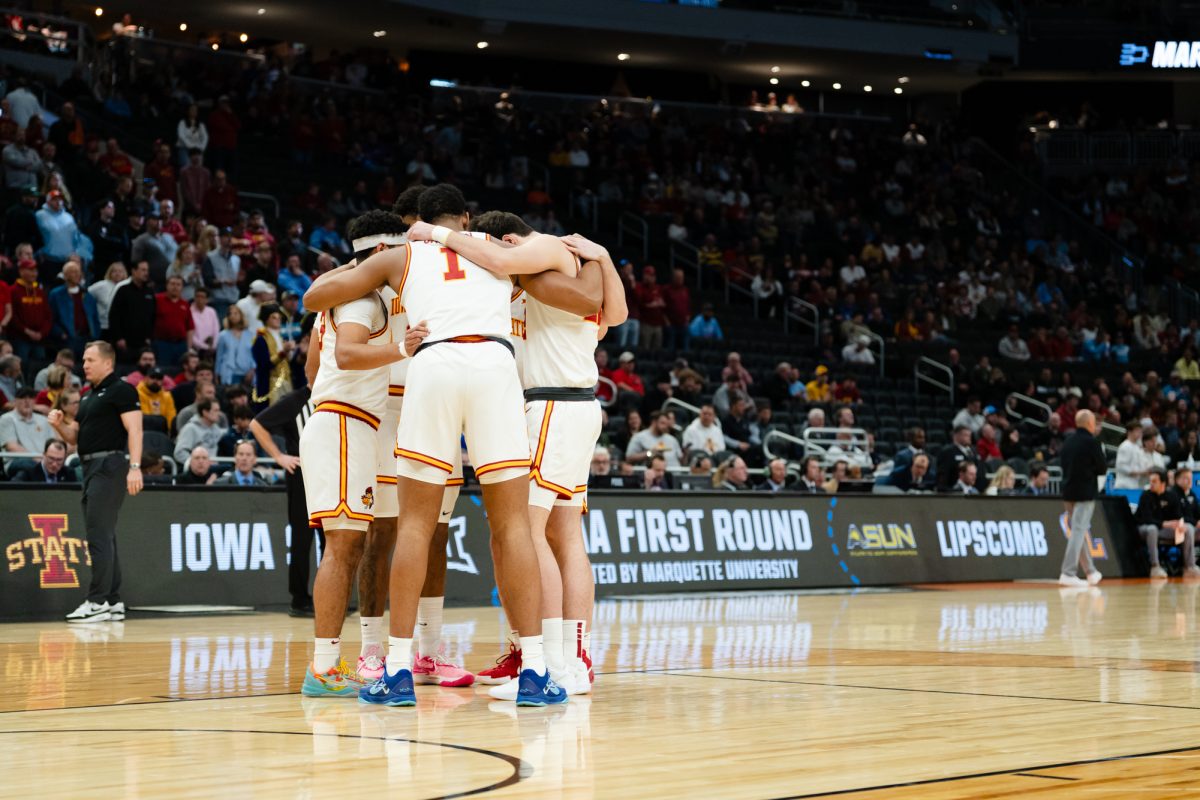Appeal denied in Palo case
Photo: William Deaton/Iowa State
Bubu Palo speaks at a press conference at Parish Kruidenier Trial Lawyers in Des Moines right after the sexual assault charges were dropped against him on Jan. 14.
July 9, 2015
The Iowa Court of Appeals ruled to dismiss the Iowa Board of Regents’ appeal of the district court decision regarding a former ISU basketball player.
The Board of Regents was attempting to overturn the district court’s decision granting Bubu Palo a stay after the regents upheld a decision by ISU President Steven Leath to suspend Palo from representing the university in intercollegiate athletics.
On September 10, 2012, the Iowa State University Office of Judicial Affairs charged Palo with violating two provisions of the ISU Student Disciplinary Regulations: section 4.2.5 [prohibiting sexual misconduct, sexual assault, and sexual harassment] and section 4.2.27 [prohibiting violations of local, state, or federal law].
The charges came after a report of an unwelcome sexual encounter between a female ISU student, Palo and Spencer Cruise, who was not a student at Iowa State. Palo was initially charged with sexual assault in the second-degree before the Story County Attorney dropped the charge on Jan. 14, 2013.
An administrative law judge found the violation of the ISU Student Disciplinary Regulations to be unfounded on May 22, 2013.
In June 2013, an appeal was made by the Office of Judicial Affairs and the accuser to ISU President Steven Leath challenging the administrative law judge’s findings. As a result, Leath prohibited Palo from representing the university in intercollegiate athletics.
In September of 2013, Palo appealed Leath’s decision to the Iowa Board of Regents, but the board wholly adopted the president’s decision and denied Palo’s request for a stay. Palo then requested a judicial review of the board’s decision.
On Aug. 21, 2014, the district court found there was not substantial evidence to support the board’s conclusion that Palo violated the sexual misconduct policy. Palo was allowed to return to the ISU basketball team for his final season of eligibility.
On Thursday, the Court of Appeals denied the board’s appeal on the grounds that at this juncture the point is moot.
“Since our decision in this controversy would ‘no longer matter’ and be ‘merely academic,’ we find this issue to be moot and decline to reach the merits of this case,” the court wrote in its decision.







